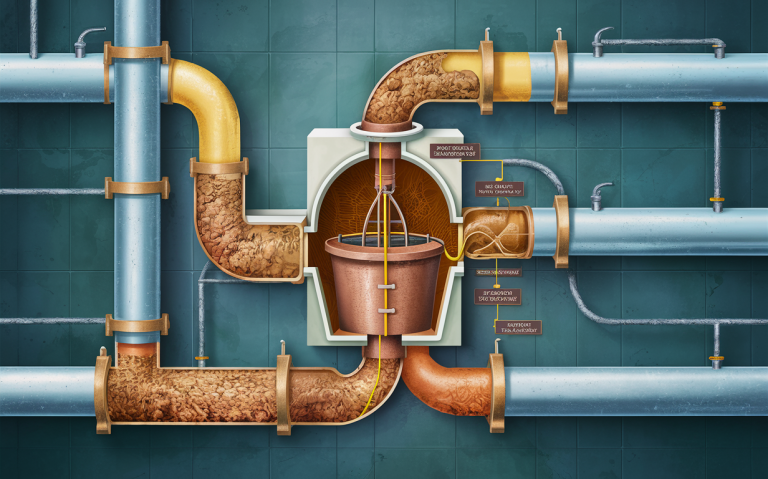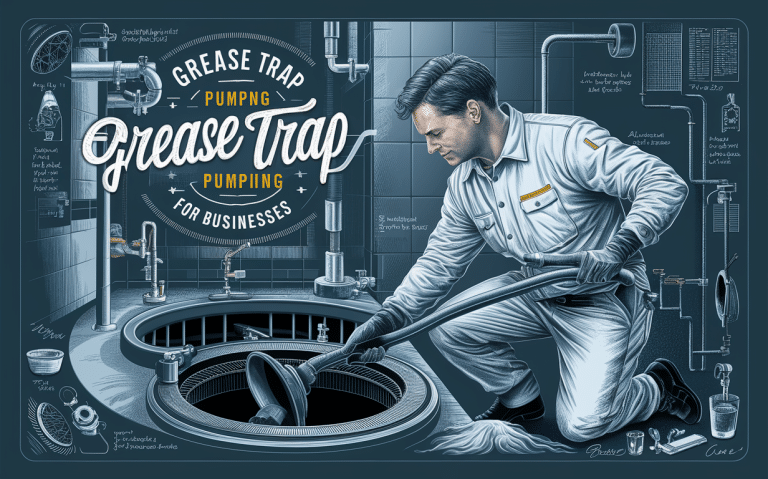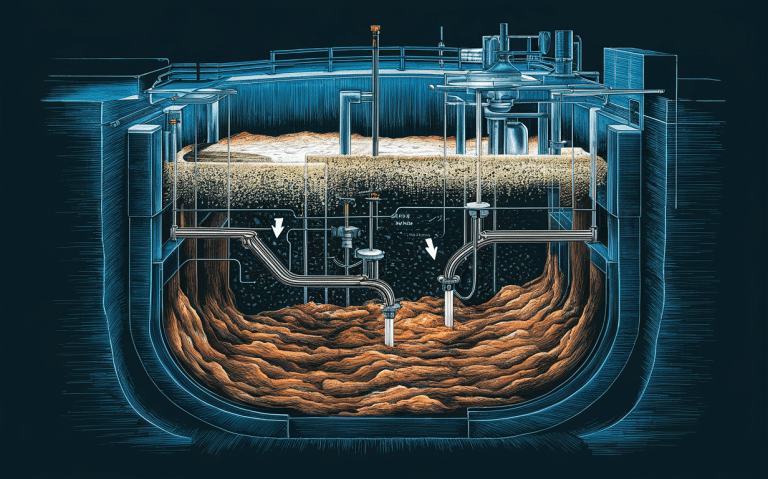Ultimate Guide: Suitable Applications for Jet Septic Systems
Suitable applications for jet septic systems are well-suited for various residential and commercial applications where traditional septic systems may not be sufficient. These advanced wastewater treatment solutions offer enhanced performance and flexibility, making them ideal for challenging site conditions, environmentally sensitive areas, and situations requiring higher treatment levels.
Table of Contents
Key Takeaways
- Jet septic systems are versatile and can be used in both residential and commercial settings
- Ideal for properties with high water tables, poor soil conditions, or limited space
- Provide superior treatment of wastewater compared to conventional septic systems
- Suitable for environmentally sensitive areas near water bodies or in flood-prone regions
- Can handle variable flow rates and are effective for seasonal or vacation properties
- Offer energy-efficient operation and reduced maintenance requirements
- Comply with strict environmental regulations in many jurisdictions
Understanding Suitable Applications for Jet Septic Systems
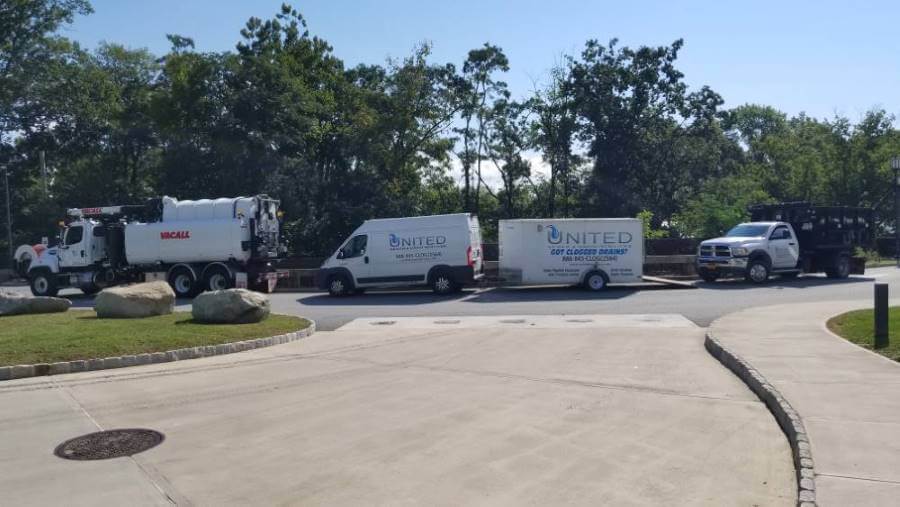
Jet septic systems are advanced wastewater treatment solutions that use aerobic bacteria to break down organic matter more efficiently than traditional septic systems. These systems incorporate a series of chambers and an aeration process to treat wastewater to a higher standard before it’s released into the environment.
How Suitable Applications for Jet Septic Systems Work
The operation of a jet septic system involves several key components working together to treat wastewater effectively. Wastewater enters the system through an inlet pipe and flows into the first chamber, where solids settle out. The liquid then moves to a second chamber where it’s aerated, promoting the growth of aerobic bacteria that break down organic matter. A final settling chamber allows any remaining solids to settle before the treated effluent is discharged.
Advantages over conventional septic systems
Jet septic systems offer several advantages over traditional septic systems. They produce a higher quality effluent, which is better for the environment and can allow for smaller drain fields. These systems are also more resistant to system shock from sudden influxes of water or chemicals, making them more reliable in various situations.
Residential Applications for Suitable Applications for Jet Septic Systems
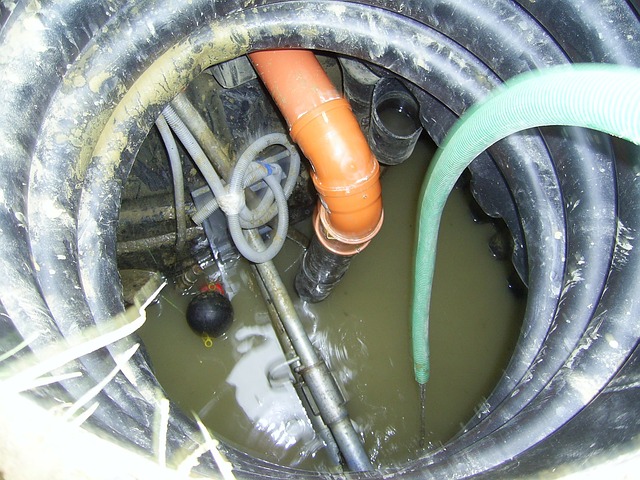
Jet septic systems are increasingly popular for residential use, especially in areas where traditional septic systems may not be suitable or effective.
Homes in areas with high water tables
For properties located in areas with high water tables, jet septic systems are an excellent choice. The advanced treatment process allows for a smaller drain field, which can be placed closer to the surface without risking groundwater contamination. This makes jet systems ideal for homes near lakes, rivers, or in coastal regions where the water table is naturally high.
Properties with poor soil conditions
Homes built on sites with poor soil conditions, such as clay or rocky soil, can benefit greatly from jet septic systems. These systems require less soil for filtration due to their superior treatment process, making them suitable for properties where traditional leach fields might not function properly.
Small lot sizes with limited space
In urban or suburban areas where lot sizes are small, jet septic systems can be a space-saving solution. Their compact design and smaller drain field requirements make them ideal for properties where space is at a premium.
Vacation homes and seasonal properties
Jet septic systems are well-suited for vacation homes and seasonal properties that experience fluctuating usage patterns. The aerobic treatment process can quickly ramp up to handle increased loads during peak usage times and maintain functionality during periods of low or no use.
Commercial Applications for Suitable Applications for Jet Septic Systems
Jet septic systems aren’t just for residential use. They’re also highly effective in various commercial settings where wastewater treatment demands are more complex.
Restaurants and food service establishments
Restaurants and other food service businesses generate high volumes of wastewater with elevated levels of grease and organic matter. Jet septic systems can handle these challenging waste streams more effectively than conventional systems, helping to prevent system failures and comply with local health regulations.
Campgrounds and RV parks
Campgrounds and RV parks often face variable wastewater flows and need systems that can handle sudden increases in usage. Jet septic systems are ideal for these applications, as they can quickly adapt to changing loads and maintain consistent treatment quality.
Small commercial complexes
For small office buildings, retail centers, or mixed-use developments not connected to municipal sewer systems, jet septic systems offer a reliable and efficient wastewater treatment solution. They can handle the varied waste streams from different businesses while occupying minimal space on the property.
Schools and educational facilities
Schools and other educational institutions in rural or suburban areas often rely on on-site wastewater treatment. Jet septic systems can effectively manage the large volumes of wastewater generated by these facilities, including the challenging waste streams from cafeterias and science labs.
Environmental Benefits of Suitable Applications for Jet Septic Systems
Jet septic systems offer significant environmental advantages over traditional septic systems, making them a preferred choice in many ecologically sensitive areas.
Reduced nutrient pollution
The advanced treatment process in jet septic systems significantly reduces the levels of nutrients, particularly nitrogen and phosphorus, in the effluent. This is crucial for protecting water bodies from algal blooms and eutrophication, which can harm aquatic ecosystems.
Protection of groundwater resources
By producing a higher quality effluent, jet septic systems help safeguard groundwater resources from contamination. This is particularly important in areas where residents rely on well water for their drinking supply.
Smaller environmental footprint
The compact design and smaller drain field requirements of jet septic systems result in less disturbance to the natural landscape. This can help preserve local ecosystems and maintain the aesthetic appeal of properties.
Regulatory Compliance and Suitable Applications for Jet Septic Systems
Many regions have implemented stricter regulations on wastewater treatment, particularly in environmentally sensitive areas. Jet septic systems often meet or exceed these regulatory requirements, making them a preferred choice for property owners and developers.
Meeting stringent effluent standards
Jet septic systems are capable of producing effluent that meets or exceeds the most stringent regulatory standards. This makes them suitable for use in areas where conventional septic systems may no longer be permitted due to environmental concerns.
Approval for use in sensitive watersheds
Many jurisdictions have designated certain watersheds as sensitive areas requiring advanced wastewater treatment. Jet septic systems are often approved for use in these areas due to their superior treatment capabilities and reduced environmental impact.
Facilitating property development in challenging areas
For developers looking to build in areas with strict environmental regulations or challenging site conditions, jet septic systems can often provide a viable wastewater treatment solution where conventional systems would not be allowed.
Maintenance and Operation Considerations
While jet septic systems offer many advantages, they do require some specific maintenance and operational considerations to ensure optimal performance.
Regular inspections and servicing
Like all septic systems, jet systems require regular inspections and servicing to maintain peak performance. This typically includes checking the aeration system, cleaning filters, and removing accumulated solids from the tank.
Power requirements and backup systems
Jet septic systems rely on electrical components for aeration and pumping. Property owners need to consider the power requirements and may want to install backup power systems to ensure continuous operation during power outages.
Proper use and system care of the jet septic system
Educating property owners and users about proper system care is crucial. This includes avoiding the disposal of harmful chemicals, minimizing water waste, and being mindful of what goes down the drain.
Cost Considerations for Suitable Applications for Jet Septic Systems
While jet septic systems often have higher upfront costs than conventional systems, they can offer long-term savings and value in many situations.
Initial installation costs
The initial cost of installing a jet septic system is typically higher than that of a conventional system due to the more complex components and design. However, this cost can be offset by reduced excavation and drain field requirements in many cases.
Long-term operational expenses
Jet septic systems may have slightly higher operational costs due to electricity usage for aeration and pumping. However, these costs are often balanced by reduced maintenance needs and longer system lifespans.
Potential savings on property development
In areas where jet septic systems allow for development on otherwise unsuitable land, the initial higher cost can be offset by increased property values or the ability to develop land that would otherwise be unusable.
Successful Applications of Jet Septic Systems
To illustrate the versatility and effectiveness of jet septic systems, let’s look at some real-world applications in the Middletown, New York area.
Lakeside vacation community
A vacation community near one of the many lakes in Orange County faced challenges with high water tables and stringent environmental regulations. By installing jet septic systems, the community was able to upgrade its wastewater treatment capabilities, protect the lake’s water quality, and comply with local regulations.
Rural school expansion
A growing school district in Sullivan County needed to expand its facilities but was constrained by limited space and challenging soil conditions. A jet septic system provided the necessary treatment capacity in a compact footprint, allowing the school to proceed with its expansion plans while meeting all regulatory requirements.
Restaurants in a sensitive watershed
A popular restaurant located in the Delaware River watershed was required to upgrade its wastewater treatment system to meet new environmental standards. A jet septic system was installed, allowing the restaurant to continue operating while significantly reducing its environmental impact on the river ecosystem.
Comparing Jet Septic Systems to Other Advanced Treatment Options
While jet septic systems are an excellent choice for many applications, it’s important to consider how they compare to other advanced treatment options.
| Feature | Jet Septic System | Membrane Bioreactor (MBR) | Sequencing Batch Reactor (SBR) |
|---|---|---|---|
| Treatment Quality | High | Very High | High |
| Space Requirements | Moderate | Low | Moderate to High |
| Energy Consumption | Moderate | High | Moderate to High |
| Maintenance Needs | Moderate | High | Moderate |
| Initial Cost | Moderate | High | Moderate to High |
| Suitability for Small Flows | Excellent | Good | Good |
| Ability to Handle Flow Variations | Good | Excellent | Excellent |
Future Trends in Suitable Applications for Jet Septic Systems Technology
As wastewater treatment technology continues to evolve, jet septic systems are likely to see further improvements and innovations.
Smart monitoring and control systems
The integration of smart technology into jet septic systems is allowing for real-time monitoring and remote control of system operations. This can help identify and address issues before they become serious problems, improving system reliability and performance.
Enhanced nutrient removal capabilities
Ongoing research is focused on improving the nutrient removal capabilities of jet septic systems, particularly for nitrogen and phosphorus. This could make these systems even more suitable for use in environmentally sensitive areas.
Energy efficiency improvements
Manufacturers are continually working to improve the energy efficiency of jet septic systems. This includes developing more efficient aeration systems and exploring the use of renewable energy sources to power system components.
Choosing the Right Jet Septic System
Selecting the appropriate jet septic system for a specific application requires careful consideration of several factors.
Assessing site conditions and constraints
A thorough site assessment is crucial for determining the suitability of a jet septic system. This includes evaluating soil conditions, water table levels, available space, and proximity to water bodies or other sensitive areas.
Determining treatment capacity requirements
Accurately estimating the daily wastewater flow and treatment capacity needs is essential for selecting the right size system. This should take into account both current and future needs, as well as any potential peak usage periods.
Considering local regulations and permit requirements
It’s important to thoroughly review local regulations and permit requirements before selecting a jet septic system. This may involve consulting with local health departments or environmental agencies to ensure compliance with all applicable standards.
Evaluating long-term costs and benefits
While the initial cost of a jet septic system may be higher than some alternatives, it’s important to consider the long-term costs and benefits. This includes factors such as energy consumption, maintenance requirements, system lifespan, and potential property value impacts.
Conclusion
Jet septic systems represent a significant advancement in on-site wastewater treatment technology. Their versatility, superior treatment capabilities, and environmental benefits make them suitable for a wide range of applications in both residential and commercial settings.
As environmental regulations become increasingly stringent and the need for effective wastewater treatment in challenging locations grows, jet septic systems are likely to play an increasingly important role in protecting public health and the environment.
For property owners, developers, and municipalities in the Middletown, New York area and beyond, Suitable Applications for Jet Septic Systems offer a reliable and effective solution for managing wastewater in situations where traditional septic systems may fall short.
By carefully considering the specific needs of each application and working with experienced professionals, it’s possible to leverage the benefits of jet septic systems to overcome wastewater treatment challenges and create more sustainable communities.
Suitable applications for jet septic systems in residential and commercial settings. Learn how these advanced wastewater solutions excel in challenging environments. For more information, you can visit our website or contact us.


